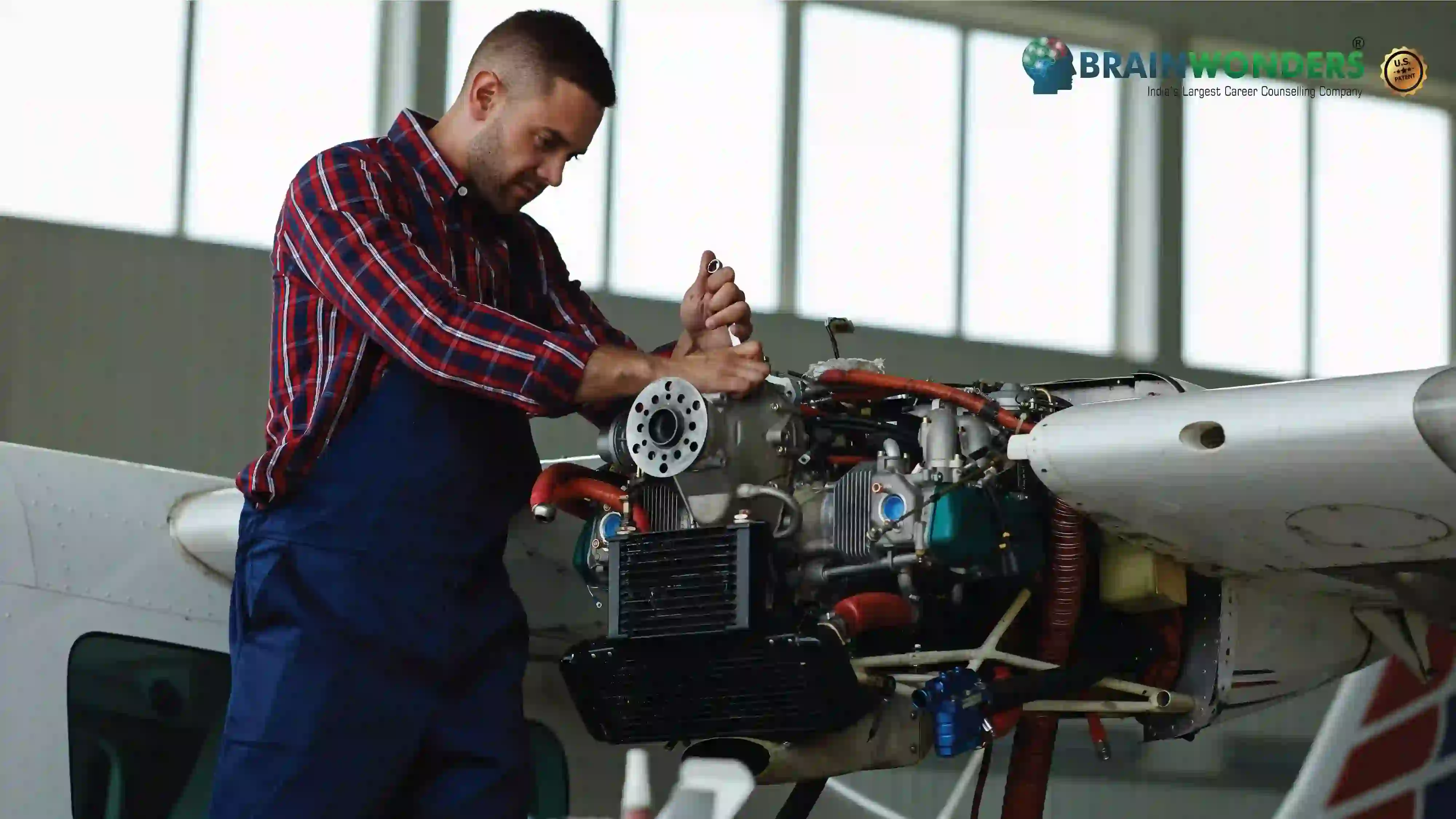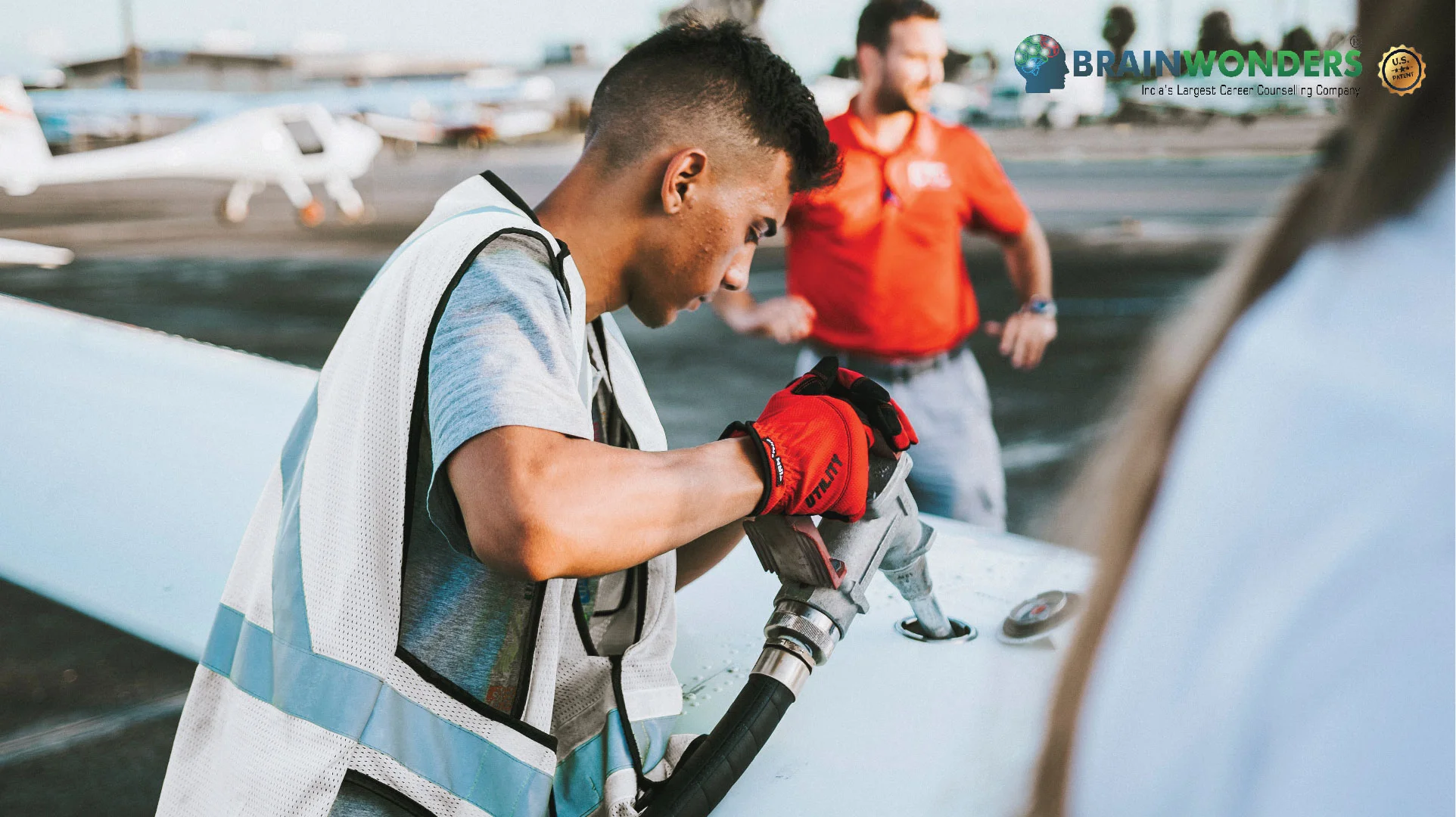How to become a Flight Test Engineer
Overview, Courses, Exam, Colleges, Pathways, Salary

Overview
Who is Flight Test Engineer ?
Flight test engineers verify whether an aircraft is in safe operating condition. They are often experienced enough to deal with a variety of aircraft and through a lengthy and extensive training procedure. Flight test engineers evaluate which data is necessary and schedule test flights to get it. They also construct a budget for the expected testing expenditures when creating the test criteria. They then supervise the testing procedure and gather the necessary data. They utilise the data to ascertain how various systems operate under various scenarios. They then analyse the test data, compile reports on the findings, and draw conclusions based on the data. They assist in identifying solutions to problems they discover and cooperate with other engineers to improve design blueprints. They eventually verify that the aircraft performs as expected, complies with relevant rules, and is certified ready.
Typical day at work
What does Flight Test Engineer do?
- Flight test engineers have an extensive list of roles both on and off the ground. Before takeoff begins, they must inspect the aircraft and ensure that it is safe for use.
- They often have a pre-flight checklist that has to be completed before a plane is cleared to fly. These include checks for any fluid leaks or improperly inflated tires.
- Once the plane is airborne, the flight engineer, constantly monitors all of the computer systems and checks for any abnormalities.
- Flight test engineers are experts on all of the plane's mechanical instruments including the fuel gauges, pressure indicators, wing flaps and even the landing gear. The pilot can confer with the flight engineer if they have any questions or concerns about a specific instrument and its operation.
- They also take a look at the weather patterns and determine the proper amount of fuel required for the flight.
- They control the air conditioning, cabin airflow, the main electrical system and the engine power.
Abilities and Aptitude needed
What are the skills, abilities & aptitude needed to become Flight Test Engineer?
- Flight test engineers must have strong analytical skills in order to review large amounts of data and use it to inform their conclusions and recommendations.
- Attention to detail is important because they need to ensure that they have sufficiently tested all systems required and gathered sufficient data to form meaningful conclusions.
- They must be capable of multitasking because they are involved with many aspects of preparing aircraft and need to be able to meet deadlines.
- They also need strong communication skills to effectively present their findings.
Pathways
How to become an Flight Test Engineer?
Entrance Exam
Entrance Exam for Flight Test Engineer ?
Courses
Which course I can pursue?
Best Colleges
Which are the best colleges to attend to become an Flight Test Engineer?
Industries
Which Industries are open for Flight Test Engineer?
- Government organizations
- Commercial airlines
- Private manufacturing companies
- Airports
- Military field
internship
Are there internships available for Flight Test Engineer?
Internships are an important step towards finding a job after graduation. Many colleges and universities offer internship opportunities related to solar energy engineering. Students can inquire about these opportunities through their career services counselors, academic advisers, or professors.
Career outlook
What does the future look like for Flight Test Engineer?
Although the projection for careers in aerospace engineering is 2%, which is much lower than the average range, the rise in fatal incidents will increase the demand for flight test engineers. A bachelor's degree in aeronautical engineering, mechanical engineering, electrical engineering, or a related field is required. A master's degree would help you grow in your job, and flying experience of at least 250 hours would help you be recruited and promoted. The work schedules are flexible; it is a full-time job that may demand additional commitment at periods when aircraft testing is prioritised. In India, flight test engineers earn between 27,000 and 30,000 rupees per month on average.







